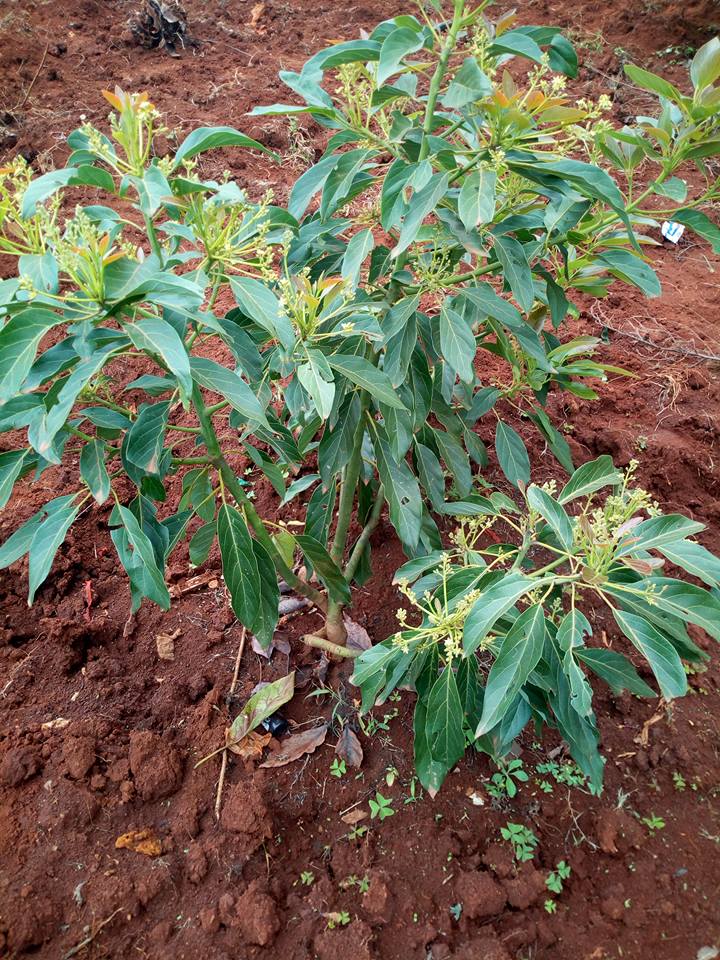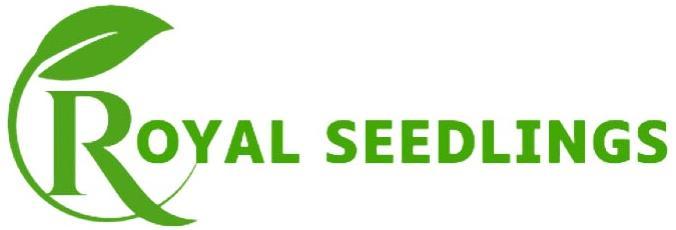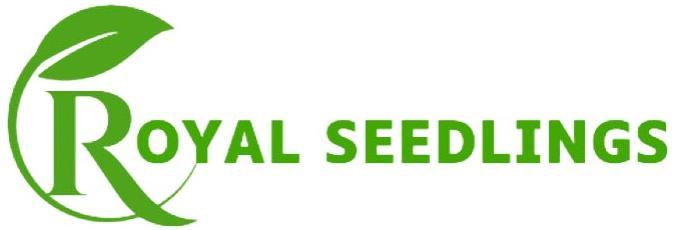Understanding the Importance of Soil Quality and Nutrient Management for Healthy Hass Seedling
The significance of soil quality and nutrient management
Soil quality and nutrient management play a crucial role in the successful cultivation of healthy Hass seedlings. The quality of soil directly impacts the growth and development of plants, including their ability to absorb essential nutrients. Understanding the importance of soil composition, nutrient deficiencies, and effective management strategies is essential for promoting healthy Hass seedlings.
This article aims to explore the significance of soil quality and nutrient management, highlighting the role they play in ensuring optimal growth and establishing a strong foundation for the successful cultivation of Hass seedlings. By implementing best practices and monitoring soil quality, growers can enhance nutrient availability, prevent potential diseases, and ultimately cultivate robust and thriving Hass seedlings.
The significance of soil quality and nutrient management
Importance of soil quality for plant growth
Soil quality is like the foundation of a sturdy house – it’s essential for the growth and development of plants, including Hass seedlings. Good soil quality provides a favorable environment for root growth, nutrient uptake, and water retention. Without it, your Hass seedlings may struggle to establish themselves and achieve their full potential.
Role of nutrient management in promoting healthy seedlings
Just like humans need a balanced diet to stay healthy, Hass seedlings require proper nutrient management to thrive. Nutrients such as nitrogen, phosphorus, and potassium are crucial for their growth and productivity. By managing the nutrient levels in the soil, you can ensure that your Hass seedlings have all the necessary resources to grow strong and healthy.

The role of soil composition in promoting healthy Hass seedlings
Understanding the basic components of soil
Soil is made up of a mix of minerals, organic matter, water, and air. The minerals provide nutrients, the organic matter improves soil structure and fertility, while the water and air allow for root respiration and the movement of nutrients. It’s like a perfect cocktail for Hass seedlings!
Soil texture and its impact on seedling growth
Soil texture refers to the size of the particles in the soil, like sand, silt, and clay. The texture affects the soil’s ability to hold water and nutrients. Sandy soils drain quickly, while clay soils hold on to moisture and nutrients tightly. Finding the right balance, known as loam soil, is ideal for Hass seedlings as it provides good drainage while retaining enough water and nutrients.
pH levels and their effect on Hass seedlings
pH, the measure of soil acidity or alkalinity, can influence nutrient availability for your Hass seedlings. Most plants prefer a slightly acidic to neutral pH range (around 6 to 7). If the soil pH is too high or too low, it can affect nutrient uptake and hinder seedling growth. Think of it as offering your Hass seedlings a comfortable environment to thrive!
Understanding the impact of nutrient deficiency on Hass seedling growth
Common nutrient deficiencies in Hass seedlings
Nutrient deficiencies can be a real buzzkill for your Hass seedlings. Common ones include nitrogen, phosphorus, and potassium deficiencies, which can cause stunted growth, yellowing leaves, and poor fruit development. It’s like they’re shouting, “Feed me, Seymour!”
Symptoms and effects of nutrient deficiencies
When Hass seedlings lack essential nutrients, they let you know with their sad appearance. Nitrogen deficiency turns their leaves pale and yellow, phosphorus deficiency leads to purplish leaves, and potassium deficiency causes leaf browning and weak stems. It’s like they’re sending out an SOS distress signal!
Consequences of prolonged nutrient deficiency
Ignoring nutrient deficiencies can have dire consequences for your Hass seedlings. Prolonged deficiencies not only stunt growth and reduce productivity, but they can also make the plants more vulnerable to pests and diseases. It’s like leaving your Hass seedlings stranded on a desert island without food or water!

Best practices for soil preparation and amendment for optimal Hass seedling health
Preparing the soil before planting
Before bringing in the Hass seedlings, it’s crucial to prep the soil properly. Remove any weeds or debris, break up compacted soil, and incorporate organic matter to improve soil structure and fertility. Think of it as giving your Hass seedlings a clean and cozy bed to settle into.
Choosing suitable soil amendments for Hass seedlings
Soil amendments act like a power boost for your Hass seedlings. Consider adding compost, well-rotted manure, or commercial organic fertilizers to enhance nutrient availability and overall soil health. It’s like treating your Hass seedlings to a delicious and nutritious meal!
Proper incorporation techniques for amendments
When incorporating soil amendments, mix them thoroughly with the native soil to ensure an even distribution of nutrients. You don’t want your Hass seedlings to stumble upon a nutrient feast in one spot and go hungry in another. So, get your shovel ready and mix it up!
With a solid understanding of soil quality, nutrient management, and the impact on Hass seedlings, you’ll be well-equipped to create the optimal environment for their healthy growth. So go ahead, get your hands dirty, and watch those Hass seedlings thrive like never before.

Implementing effective nutrient management strategies for Hass seedlings
Growing healthy Hass seedlings requires implementing effective nutrient management strategies. Understanding how nutrients are taken up by the seedlings is crucial. Hass seedlings have specific nutrient requirements that need to be met for optimal growth.
Understanding nutrient uptake in Hass seedlings
Hass seedlings absorb nutrients through their roots. The main nutrients they need are nitrogen, phosphorus, and potassium, also known as NPK. These nutrients play essential roles in various plant functions such as leaf development, root growth, and fruit production. It’s important to ensure that these nutrients are available to the seedlings in the right quantities.
Choosing appropriate fertilizers for Hass seedlings
When it comes to fertilizers, selecting the right type is crucial. Organic fertilizers, such as compost or manure, can provide a slow release of nutrients over time. Alternatively, synthetic fertilizers can provide a quick boost of nutrients. It’s best to choose fertilizers specifically formulated for Hass seedlings, ensuring they contain the necessary NPK ratio.
Timing and frequency of nutrient application
Timely and regular application of nutrients is important for Hass seedlings. Nutrients should be applied during periods of active growth. Over-fertilizing can be detrimental, leading to nutrient imbalances and potential damage to the seedlings. It’s essential to follow recommended guidelines for frequency and dosage to ensure optimal nutrient uptake without overloading the seedlings.
Evaluating and monitoring soil quality for ongoing Hass seedling health
Regular evaluation and monitoring of soil quality is vital for maintaining the health of Hass seedlings. This allows growers to make informed decisions about nutrient management and adjust practices as needed.
Importance of regular soil testing
Regular soil testing helps determine the quality and nutrient content of the soil. It provides valuable information about pH levels, nutrient deficiencies or excesses, and presence of any harmful compounds. Soil testing should be conducted at least once a year to assess any changes and make appropriate adjustments.
Interpreting soil test results
Interpreting soil test results can seem daunting, but it’s essential to understand the data obtained. Soil test reports usually include nutrient levels and recommendations. By evaluating these results, growers can identify any deficiencies or imbalances and develop a plan to address them effectively.
Adjusting nutrient management practices based on soil analysis
Based on soil analysis, growers can make informed decisions about adjusting nutrient management practices. Knowing the soil’s nutrient content allows for targeted fertilization, ensuring the specific needs of Hass seedlings are met. It also helps prevent unnecessary application of nutrients, saving both time and money.

The connection between soil quality and disease prevention in Hass seedlings
Maintaining soil quality is closely tied to preventing diseases in Hass seedlings. A healthy soil environment offers better disease resistance and reduces the risk of soilborne diseases.
Linking soil health to disease resistance in seedlings
A healthy and balanced soil supports the growth of strong and vigorous seedlings. A robust root system developed in nutrient-rich soil is better equipped to defend against pathogens and diseases. By prioritizing soil health, growers can enhance the overall vigor and disease resistance of Hass seedlings.
Soilborne diseases affecting Hass seedlings
Various soilborne diseases can affect Hass seedlings, including root rot, fusarium wilt, and phytophthora. These diseases can weaken the seedlings, stunt growth, and even lead to death if left untreated. It is crucial to be aware of the common diseases in the specific growing region and implement preventative measures.
Preventive measures for disease control through soil management
Practicing good soil management techniques can help prevent the occurrence and spread of soilborne diseases. These include crop rotation, maintaining proper drainage, avoiding over-irrigation, and utilizing disease-resistant rootstocks. Additionally, ensuring the quality of any amendments or soil used for transplanting is free from pathogens is vital.
Conclusion: Prioritizing soil quality and nutrient management for successful Hass seedling cultivation
In conclusion, the importance of soil quality and nutrient management cannot be overstated when it comes to growing healthy Hass seedlings. Implementing effective strategies, such as understanding nutrient uptake, choosing appropriate fertilizers, and timing nutrient application, is crucial.
Regular evaluation of soil quality through testing and adjusting nutrient management practices accordingly ensures ongoing seedling health. Additionally, maintaining soil health has a direct impact on disease prevention in Hass seedlings. By prioritizing soil quality and nutrient management, growers can set themselves up for successful and thriving Hass seedling cultivation.

FAQ
Why is soil quality important for Hass seedling growth?
Soil quality directly affects the availability of essential nutrients, water retention, and root development. Healthy soil provides the necessary foundation for robust growth and overall plant health. Poor soil quality can hinder nutrient uptake and lead to stunted growth and susceptibility to diseases.
How can I identify nutrient deficiencies in my Hass seedlings?
Nutrient deficiencies can manifest as specific symptoms in plants. Common signs include yellowing or discoloration of leaves, stunted growth, and poor fruit production. Conducting soil tests and plant tissue analysis can help determine which nutrients are lacking and guide appropriate nutrient management strategies.
What are some best practices for soil preparation and amendment?
To prepare soil for Hass seedlings, it is important to remove any weeds or debris and loosen the soil. Incorporating organic matter such as compost or well-rotted manure can improve soil structure and nutrient content. Additionally, adjusting soil pH levels and ensuring proper drainage are crucial for optimal seedling growth.
How often should I monitor soil quality and nutrient levels?
Regular monitoring of soil quality is essential for ongoing Hass seedling health. Soil testing should be conducted before planting and periodically throughout the growing season. The frequency of soil testing may vary depending on factors such as soil type, crop rotation, and previous nutrient management practices. Consulting with agricultural experts can guide the optimal monitoring schedule for your specific farming operation.
Royal Seedlings offers top-notch, cost-effective seedlings. Our products are known for their exceptional quality and affordability. Trust Royal Seedlings for all your seedling requirements. Call us at +254711315313 or write an email to julius.murega@royalseedlings.com for order and inquiry.






